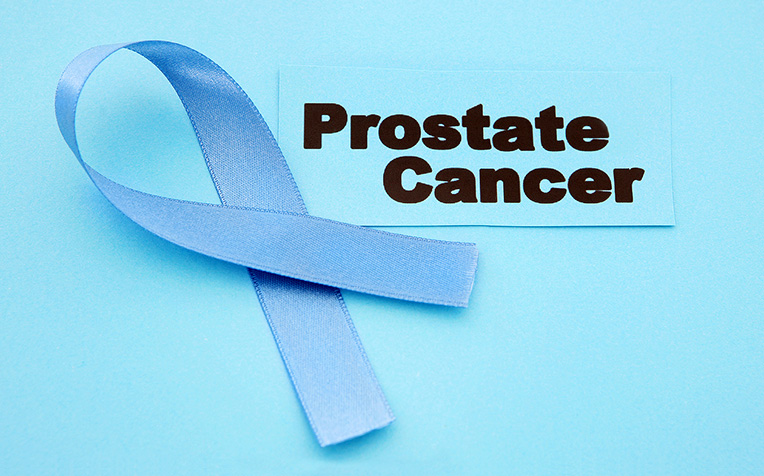HOW TO PREVENT PROSTATE CANCER
Prostate Cancer Prevention in Uganda: A Guide to Healthy Living
Prostate cancer is one of the most common cancers affecting men worldwide, and Uganda is no exception. While factors such as age, genetics, and ethnicity can increase the risk, adopting a healthy lifestyle can play a significant role in reducing the likelihood of developing the disease. Prostate cancer prevention is not just about individual effort—it requires collective awareness and action. This article highlights practical steps to prevent prostate cancer and how communities in Uganda can work together to combat this growing health concern.
Understanding Prostate Cancer
The prostate is a small gland located below the bladder and in front of the rectum, responsible for producing seminal fluid. Prostate cancer occurs when cells in this gland grow uncontrollably. While the exact cause is unknown, certain risk factors such as age (50 and above), a family history of the disease, and a diet high in unhealthy fats are linked to its development.
Can Prostate Cancer Be Prevented?
While no method guarantees complete prevention, lifestyle and dietary choices can significantly reduce the risk of prostate cancer. Here are key strategies:
1. Adopt a Healthy Diet
- Increase Fruits and Vegetables: Foods rich in vitamins and antioxidants, such as tomatoes, spinach, carrots, and avocados, may protect against prostate cancer. Tomatoes, in particular, contain lycopene, a powerful antioxidant linked to a lower risk of prostate cancer.
- Limit Red and Processed Meats: Studies suggest that high consumption of red meat and processed foods may increase prostate cancer risk. Opt for lean proteins like fish or legumes.
- Include Healthy Fats: Swap saturated fats found in fried foods with healthier options like olive oil, nuts, and seeds.
2. Stay Physically Active
Regular exercise helps maintain a healthy weight, which is crucial because obesity is associated with an increased risk of aggressive prostate cancer. Engage in activities such as walking, jogging, or playing soccer for at least 30 minutes a day, five times a week.
3. Limit Alcohol and Quit Smoking
Excessive alcohol consumption and smoking have been linked to several cancers, including prostate cancer. Reducing alcohol intake and quitting smoking can improve overall health and lower cancer risk.
4. Know Your Family History
Men with a family history of prostate cancer are at higher risk. If you have close relatives (such as a father or brother) diagnosed with the disease, start screening earlier, ideally around age 40. Early detection is key to effective prevention and treatment.
5. Stay Hydrated and Avoid Sugary Drinks
Drinking plenty of water helps flush toxins from the body and supports overall health. Replace sugary sodas with natural juices or herbal teas to maintain a healthy lifestyle.
6. Consider Regular Check-Ups and Screenings
Routine prostate cancer screening can help detect the disease in its early stages when it is most treatable. In Uganda, men over the age of 50 are encouraged to undergo regular prostate-specific antigen (PSA) tests or digital rectal exams (DRE). For those at higher risk, screenings can start earlier.
7. Manage Stress and Mental Health
Chronic stress can negatively affect the immune system and overall health. Engage in relaxation techniques such as yoga, meditation, or spending quality time with loved ones to reduce stress.
Challenges to Prostate Cancer Prevention in Uganda
Preventing prostate cancer in Uganda comes with unique challenges:
- Limited Awareness: Many men are unaware of the disease and how to prevent it.
- Cultural Barriers: Some men may avoid seeking medical help due to stigma or fear.
- Access to Healthcare: Rural areas often lack adequate healthcare facilities, making prevention and early detection difficult.
Addressing These Challenges
- Community Education: Awareness campaigns should be conducted in schools, churches, and community gatherings to educate men about prostate cancer prevention.
- Government Support: Policies should prioritize access to affordable screening services and healthcare facilities, especially in rural areas.
- Partnerships: NGOs and health organizations can collaborate with the Ugandan government to create mobile health clinics, making services accessible to underserved populations.
Finally
Preventing prostate cancer in Uganda requires a proactive approach, combining healthy lifestyle choices with increased awareness and early detection. By promoting healthy eating, regular exercise, and routine check-ups, Ugandan men can reduce their risk and lead healthier lives. Addressing societal and infrastructural challenges is equally important to ensure all men have the knowledge and resources to protect their health. Together, as a community, Uganda can make significant strides in reducing the burden of prostate cancer and improving overall well-being.
For more information and support, consult your local health center or reach out to organizations like the Prostate Cancer Support Consortium. Prevention starts with awareness, and every step counts
